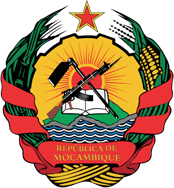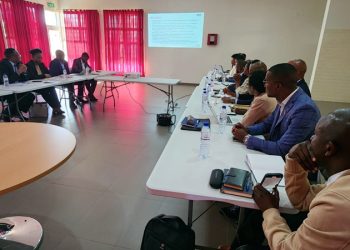Mozambique’s former finance ministers Tomaz Salomão and Luísa Diogo said on Wednesday that the economic stimulus measures announced on Tuesday by President Filipe Nyusi would bring about “changes and transformations” in the economy.
“It is a package [of measures] that brings changes, brings transformations in the way of being, of positioning and of doing things, at the level of the state, at the level of the private sector, at the level of the institutions and at the level of each of us as citizens,” Tomaz Salomão told STV.
Of the 20 measures, the former Minister of Finance chose the decision enabling the conversion a tourist visa into a business visa as one of “impressive dimension”, due to the impact it will have on foreign investment.
“Saying that the tourist visa and the business visa are unified, that alone has an impact of impressive dimensions on the simplification of procedures,” said Salomão, who is currently chairman of the Board of Directors of Standard Bank in Mozambique.
In turn, Luísa Diogo, who served both as finance minister and prime minister [in Mozambique, the prime minister does not head the executive government], showed confidence in the scope of the measures announced by the head of state, while recommending a matrix for monitoring decisions.
“I am very hopeful that this will work. Now, they will have to roll up their sleeves, because there is no doubt that there must be a matrix with very clear dates, very clear responsibilities, and a good foreman who can really manage” the execution of the stimulus package, Diogo declared.
The former government official, who is currently the chair of Absa Bank in Mozambique, appealed to the Assembly of the Republic to be more categorical, noting that some of its decisions lack legislative validation.
The 20 measures are part of the PAE – Economic Acceleration Stimulus Package, which aims to respond to the country’s growth needs, the negative impact of the Russia-Ukraine war, armed violence in Cabo Delgado province and natural disasters.
The measures announced lower the IRPC from 32 percent to 10 percent in agriculture, aquaculture and public transport, and VAT from 17 percent to 16 percent and include a VAT exemption on imports for agriculture and electrification [ to boost renewable energy].
The Mozambican head of state also signalled the introduction of tax incentives for new investments over the next three years, but did not mention the rates of these incentives.
The PAE package increases the share of revenues from natural resources transferred to the provinces where they are extracted from 2.5% to 10%.
The package also foresees the establishment of a mutual loan guarantee fund worth US$250 million (€244.4 million) to help banks make credit available in the economy at more affordable interest rates.











